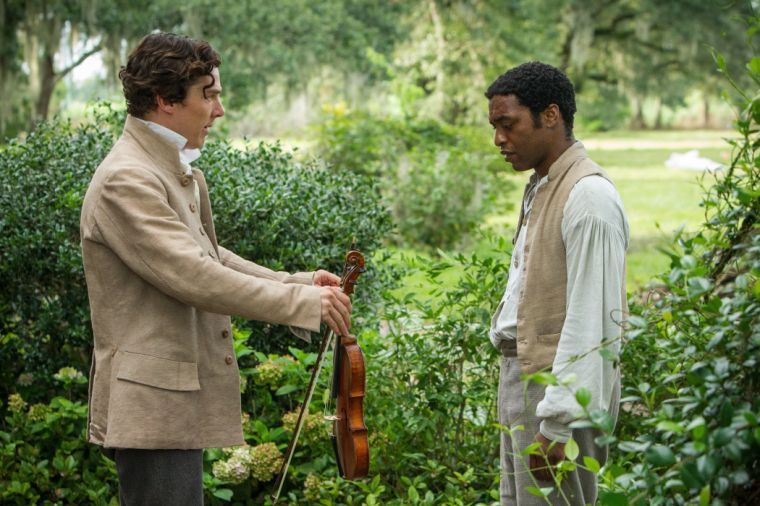All hail the King of Trolls: Why Armond White matters.
January 9, 2014
In a 1911 interview with The New York Times, Mark Twain remarked that the critical reception of his novel “The Prince and the Pauper” — which he perceived as pigeonholing the book as a simplistic comedy — “came mighty near changing the entire course of [his] literary life and incidentally gave [him] a lifelong yearning to kill a critic.”
“I shall never die happy unless I have at least scalped one,” he concluded.
Though the desire might be a bit extreme, and the method may be a hair antiquated, Twain’s hatred of critics is certainly not an isolated instance. Critics are divisive by occupation — it’s rare that we meet someone who actually enjoys being told that the project they’ve poured endless hours of labor into is an abject and utter failure. (Grade? Does it even deserve one? Fine then. Half a star. Fine. One Star.) Perhaps no one encapsulates the hatred a critic can inspire — or the importance of their work — better than City Arts editor and film critic Armond White.
Frequently ruthless and always contrarian, White has developed an almost legendary reputation as the film world’s most incisive troll (long before we called them trolls), viciously panning films that many of his peers laud as brilliant. If a movie has a 99 percent fresh rating on Rotten Tomatoes, there’s a good chance White was probably the man standing in the way of a perfect score (see: Toy Story 3). Over the past several years, he’s trashed the Harry Potter films (“the dullest franchise in the history of movie franchises”), “Midnight in Paris” (“a global degradation of our culture standards”) and many others. As The A.V. Club’s Sean O’Neill put it, White is “the man who uses his breadth of film knowledge to create the most impressively researched versions of ‘U mad bro?’ in the realm of movie criticism.”
On Monday night, White made headlines yet again because of claims that he heckled director Steve McQueen — whose film “12 Years a Slave” he dubbed “torture porn” akin to “The Human Centipede” — at the New York Film Critics Circle Awards, saying, among other things, “f*** you” and calling McQueen a “garbageman” as the director accepted the 2013 award for best director. Although White has denied the accusations, they fit all too well into his image as the film world’s proverbial — and perhaps now literal — heckler.
Whether or not the accusations made against White are true — even New Yorker writer David Denby claims that he overheard some of the insults lobbed — the stories fit nicely into the lore of White and have no doubt made it even easier to hate the man who might already be the film world’s most hated critic. Since the story broke, writers have been pointing to the incident as further evidence that White is a high-brow mouse-click baiter gleefully upsetting the sensibilities of the buttoned-down world of criticism by causing a ruckus and coming down on any film that the establishment determines is “relevant” simply because he can. Because it benefits him. Because we expect it. But most of all because he’s Armond White: King of Trolls.
Though there is certainly some truth to this perspective, simply writing White and his contrarian perspective off as snide trolling overlooks the value in White and the many writers and critics who sometimes resemble him. Though it’s difficult to agree with most of White’s sentiments about nearly any movie he happens to review, it isn’t very difficult to identify his qualms with these films — in fact, he’s written them all down in a review.
While it’s easy to roll your eyes at the fact that he enjoyed “Transformers 2: Dark of the Moon” but thought that “Toy Story 3” was awful, it’s a little bit more challenging to actually sit down and think about why he felt this way. Oftentimes, his reasoning isn’t off-base, and his criticisms often take a political angle that forces movie-goers to see the incredible challenges that lie in adapting history.
When he ticked off the sci-fi community by trashing the widely praised film “District 9,” his intent wasn’t just to troll. It was to point out the sorry job the movie had done of doing justice to the actual suffering felt under Apartheid rule in South Africa. His primary issue with “12 Years a Slave” was the use of gorgeous, artsy cinema to portray acts of horror beautifully. These pieces made readers grapple with some of the larger issues that these films, and countless others, deal with — just like good criticism should.
This isn’t to say that White isn’t a troll — he is. But he’s also a critic, and a good one, at that. In an era when it has become disturbingly easy for us to construct a media bubble in which we read only the opinions we agree with and cast off the rest (or our social media platforms filter them out for us), the intrusive, infuriating words of writers like White might be exactly what we need.
Write John at [email protected]








